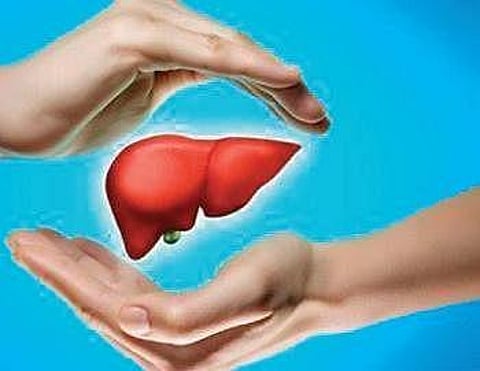

CHENNAI: Dr S Vivekanandan, HPB and liver transplant surgeon, managing trustee of the Chennai Liver Foundation discusses the causes and treatment possibilities for hepatological diseases in India.
What are some of the most common liver issues found in our country?
The top three causes of liver disease in India are alcohol, fatty liver disease, and viral hepatitis — but, all three are preventable. If one stops drinking or does not drink, then we don’t have alcoholic liver disease. To prevent fatty liver disease, the only way is to have a healthy lifestyle, exercise regularly and follow a proper diet. In India, liver disease can be prevented by creating awareness about viral hepatitis and vaccination against hepatitis B, which is one of the major killers and the 7th most common cause of death here, according to WHO.
Pollution of water can cause Hepatitis A, Hepatitis E and leptospirosis. There is increasing evidence that air pollution with certain gases and suspended particles can cause liver dysfunction and cause liver fibrosis and cirrhosis.
Could you elaborate on some early symptoms of liver diseases that warrant a visit to the hepatologist?
One of the most common symptoms is the swelling of the legs or pedal oedema, which most of us ignore. The next is jaundice or yellowness of the skin or eyes, urine. As the disease progresses, the abdominal swells increase because of the fluid accumulation. Then, patients start vomiting blood or passing blood through stool. Loss of appetite, sleep and muscle mass in the upper body are other significant symptoms. If the patient develops liver cancer, then cachectic features set in with the advancement of the disease.
Since the Chennai Liver Foundation raises funds for research in this field, where does India stand in this regard?
One of the major drawbacks of the Indian health system is the lack of research, which is very good in the West. The Chennai Liver Foundation has embarked on setting up such a research facility
in India to help in developing drugs to combat various diseases. Some of the research aspects in which the CLF is interested and embarking on is the regeneration of the liver, drugs for fatty liver disease, and vaccines for hepatitis C. We have also been doing epidemiological studies to understand the prevalence of various liver-related diseases in the community to understand the seriousness of the problem. One of the core aims of the CLF is to create awareness about liver diseases, because if one does not know the symptoms, then obviously the diagnosis gets delayed. We also have to focus on capacity-building and advising doctors about the various treatments that are available in managing liver disease.
Last year, the lockdown saw forced abstinence and then a sharp spike in alcoholism after. Has this affected the liver health of our population in general? Being homebound, what are some habits that have affected the liver health of our nation during the pandemic?
The Covid-19 pandemic has had lots of good and bad, as far as the liver is concerned. One major impact during the total lockdown was the non-availability of alcohol to the public, which has certainly helped in liver regeneration. When the offending alcohol is taken off the system, the dead cells are removed by the liver itself and new liver cells are formed. This has helped a lot of people and in fact, many with altered liver function tests secondary to alcoholic liver disease have come back to normal. But, unfortunately, some have resumed drinking and so, there has been a rebound effect because they’ve been binge-drinking and we have seen a rise in acute alcoholic hepatitis in the last few months. The downside of a total lockdown and pandemic was that people were sitting at home with no proper exercise and overeating. So, they have put on a lot of weight, which means that the liver has also taken a lot of fat into them. People who had a normal healthy liver have developed fatty liver diseases.
How have patients with existing liver disease been affected by COVID-19? Are there any links between the virus and liver health?
We have seen an increase in decompensation or complications of cirrhosis in patients affected by Covid-19. The virus in some healthy individuals has caused an increase in the liver enzymes that have settled spontaneously. But in the last eighteen months, there has been a clear decline in the number of transplants because of the covid infection. Many patients lost their lives or went off the waiting list because transplants could not be performed due to the pandemic.
The Chennai Liver Foundation is a pioneer in liver transplant surgeries as well as an advocate of organ donation. Statistically, how does India fare in organ donation in your field?
India is far behind in organ donation in India, compared to developed countries. The best countries like Spain and Singapore and most of the European countries have organ donation of close to 20-35 per million population while in India it’s approximately 0.5 to per million population. There is a huge gap between the supply and demand of organs. The CLF is a strong proponent of organ donation and we’ve been doing various awareness talks and camps. The only way to achieve this is when hospitals come together and start identifying brainstem death patients and counsel them. The government needs to back this process so that the public gains confidence in the system and comes forward for donation. One has to remember that with one brain death patient donating close to 10 people can be benefitted.